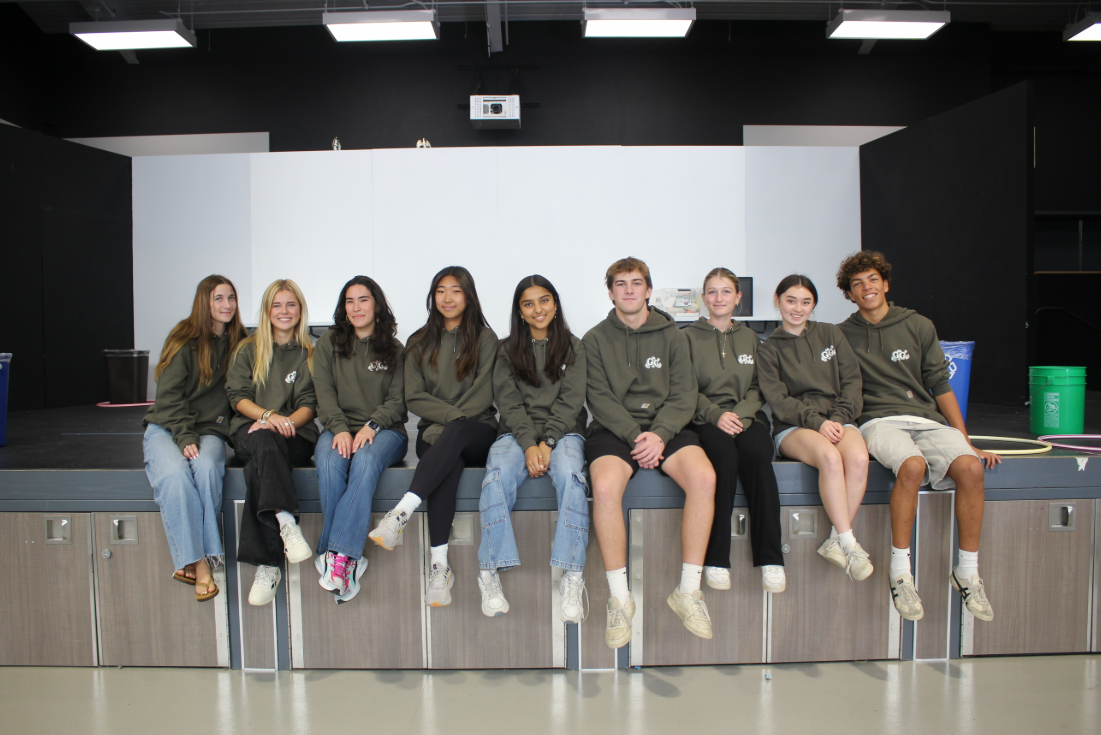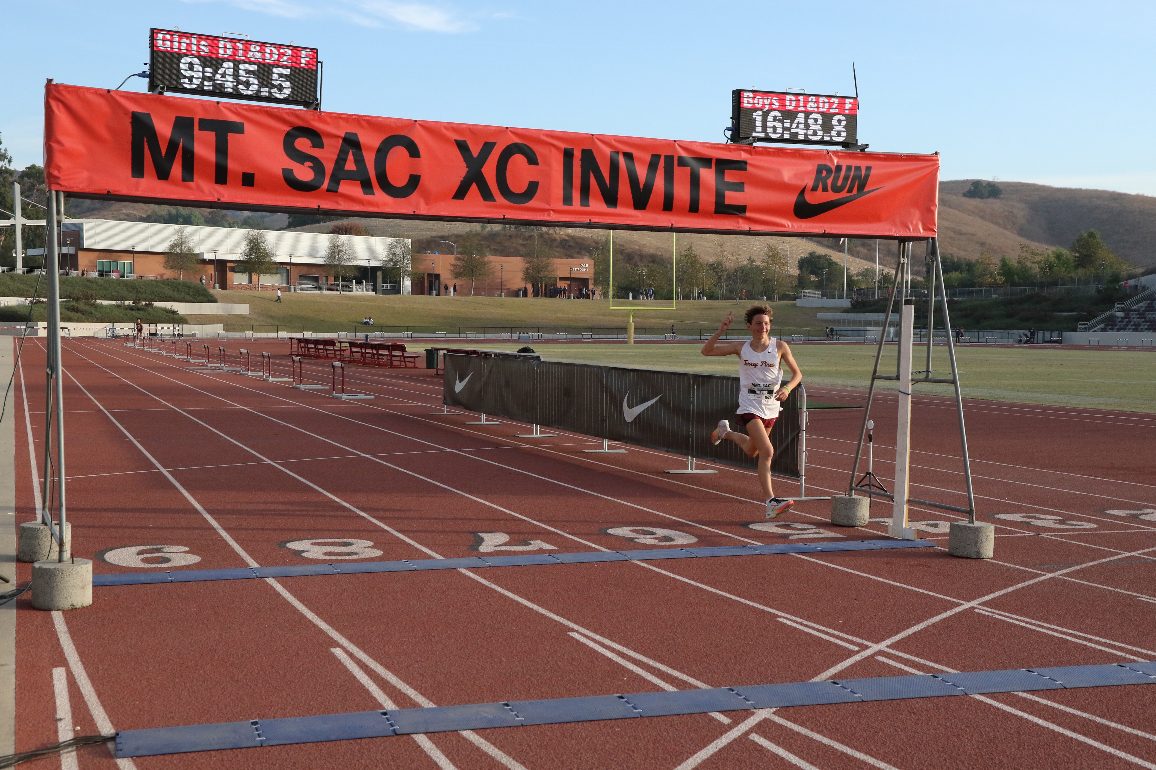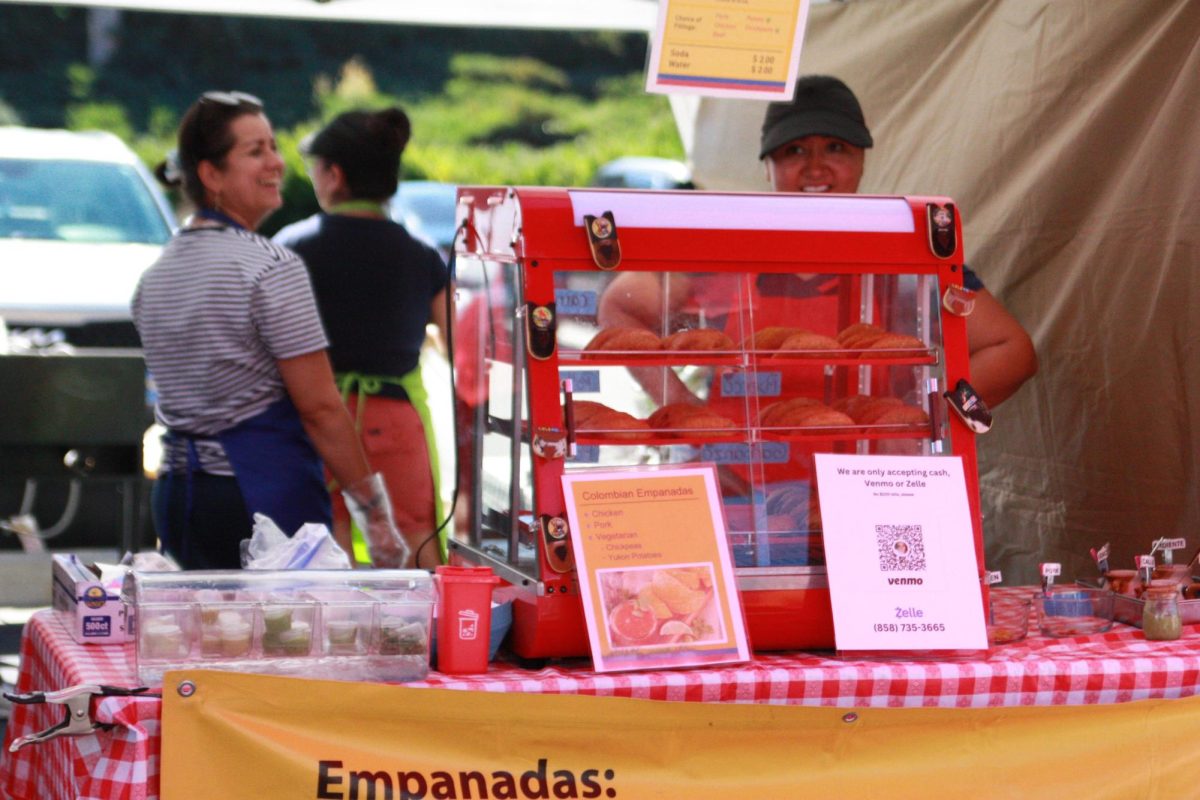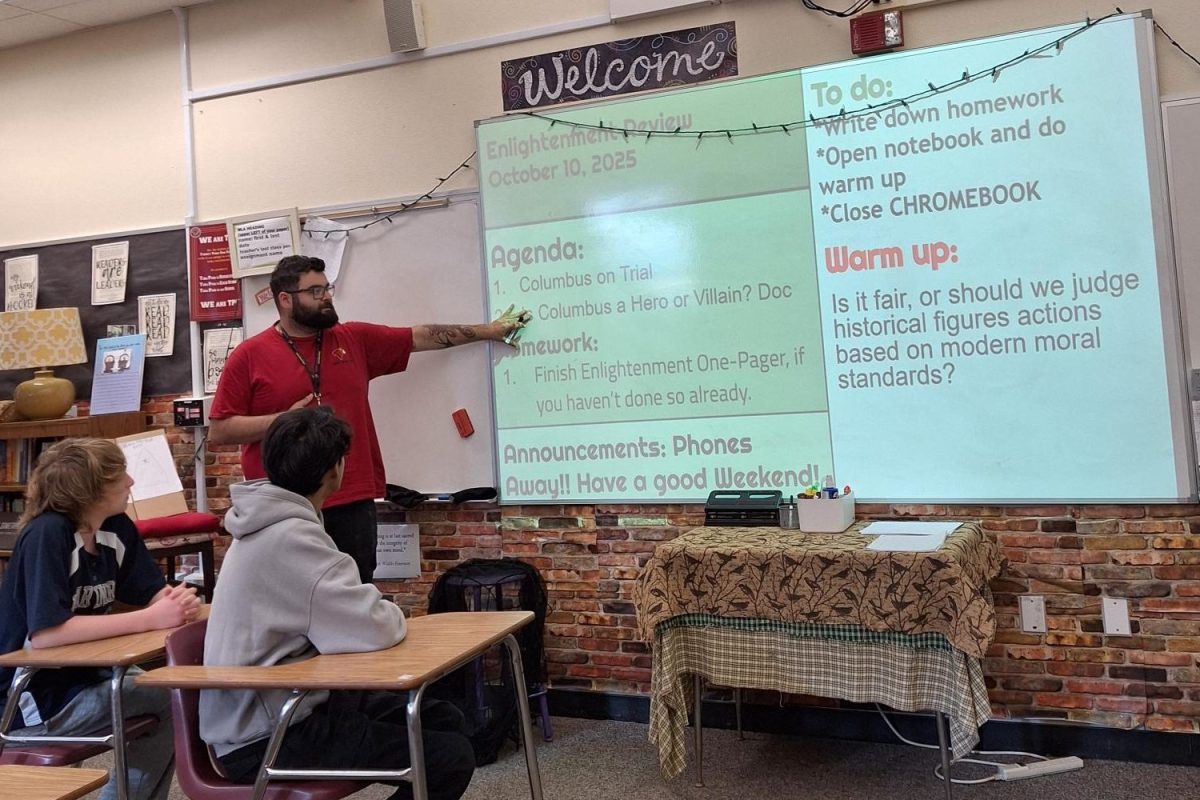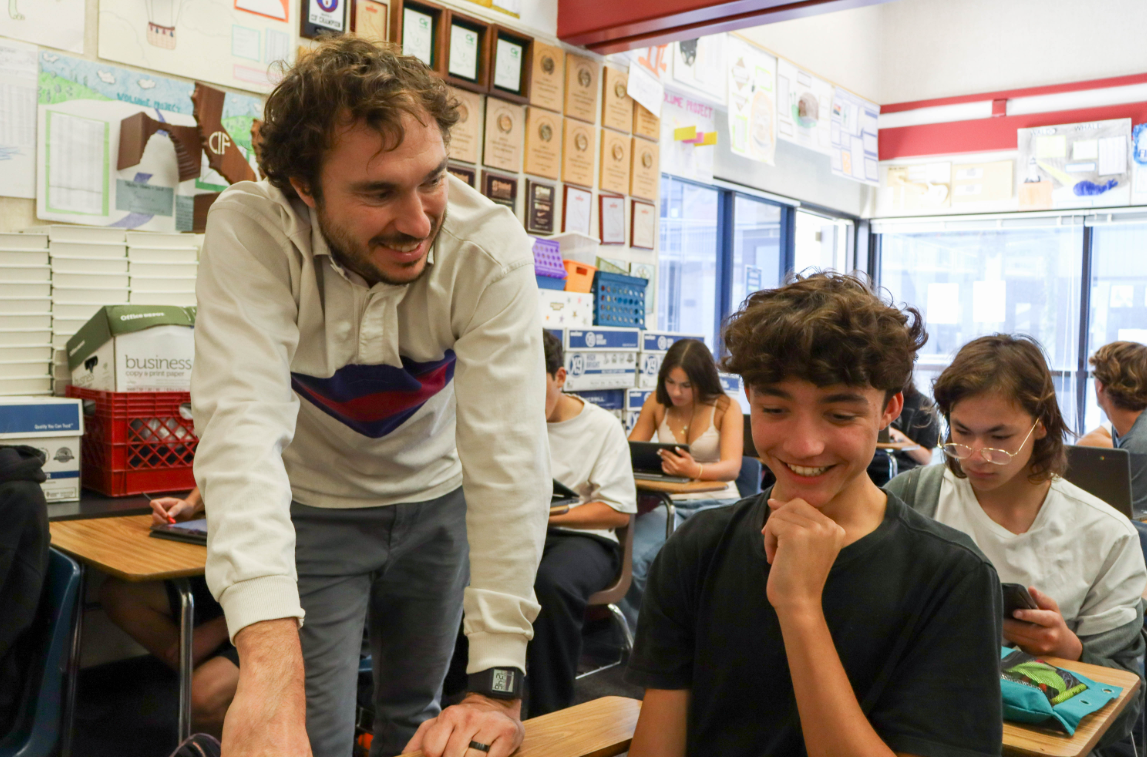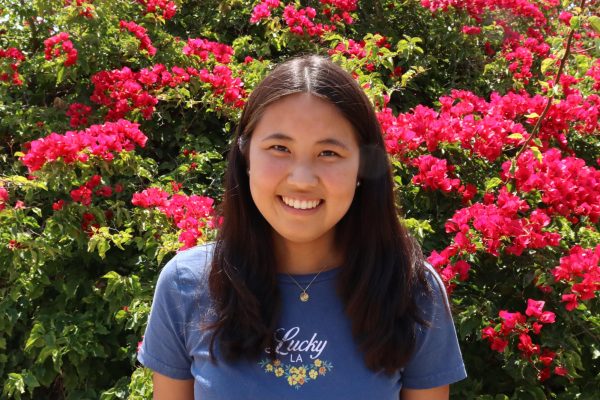On a day-to-day basis, making a real, meaningful impact feels exceedingly distant from the general student population. In fact, some aspects of culture have perpetuated the idea that a person needs certain qualifications — a high school diploma, a degree from a ‘good’ university or a leave on a trip of self-exploration — to leave a legacy. However, for the student-run nonprofit and school club Go Greenish, enacting real change and sustainable action is not distant or elusive, but integral to their organization’s identity.
“We’ve done 37 school site projects … both in San Diego and across the country … [and] we represent 763 K-12 schools in total,” Dean Smith (12), Go Greenish’s Chief Executive Officer, said. “We represent a lot of districts and we have 24 partners across all of our states.”
Smith took on the role of CEO in May. There are 18 core volunteers that make up the Go Greenish officer team, who are all committed to integrating sustainability into the lives of students through education.
In the district alone, Gro Greenish has helped reduce 2,583 metric tons of carbon emissions, according to the organization’s website. At all ten school sites, the organization pushed for recycling and compost bins, and eight electric buses were adopted to support green energy initiatives. Go Greenish’s sustainable impact extends across county and state borders, reaching thousands of students across the nation.
“I’m really honored and proud to be able to represent such a large network of like-minded students who want to make a change in their local community, as well as … across the nation.” Sabine Chung (12), CCA student and Chief Operations Officer of the organization, said. “We have a lot of students who have different ideas, [which is] a really great part about Go Greenish. Since we’re completely student-run and student-initiated, we have room to hear out all those ideas [and] give each other feedback.”
There are two key facets to Go Greenish: the fact that it is student run, and the idea that the accumulation of small actions can transform how society approaches sustainability.
“With the name … Go Green-ish, it’s not asking for any radical or big changes, it’s just small contributions over time that lead to bigger results.” Jake Selecky (12), CCA student and Chief Financial Officer, said.
Chung expanded upon this idea.
“Instead of expecting perfection from everyone and saying, ‘To make an actual change, you have to have 100% waste diversion, meaning you have to be perfect at recycling,’ … we’re trying to say you’re able to make an impact with small steps,” Chung said. “Through a lot of people making small changes in their everyday lives, you’re still able to make a really large impact.”
Curriculum development regarding sustainability and waste management is a key pillar of the organization’s endeavors, with the most prominent initiative being a pilot program at the local Earl Warren Middle School: Road to Zero Waste. This program fuses education and action together to facilitate a cohesive educational experience.
“We did a whole waste audit lab where we went in and we went through their trash cans to see how they were disposing of their waste, and seeing if they were doing it in a correct way,” Smith said. “Seeing the waste diversion data [helped the students] to see this should have gone into compost, or this should have gone into recycling,”
This data is integrated into science and math classes, weaving principles of sustainability into the district’s curriculum. Additionally, Go Greenish purchases compostable materials from a company in San Diego with the purpose of distributing these materials at Earl Warren Middle School. Student ingenuity and dedication also plays a key role in the success and impact of these community programs.
“I’ve developed a science lab that uses real data from the students’ lunch lines, as well as a statistics math lesson, [which] will be incorporated later this year into seventh and eighth grade classrooms,” Chung said. “[We’ll] see if that’ll make a difference in their sustainability habits, which is super exciting.”
In addition to the Road to Zero Waste project, several other projects within Go Greenish are also running their course. Namely, the Micro-Grant Community Garden program provides funding for schools to establish their own sustainable and technologically innovative gardens. One community garden established at CCA is solar powered and uses aeroponics, taking in nutrients via a nutrient-rich mist. The cost for all of these efforts is covered through funds raised by the club, including numerous grants and community support from businesses. Earning these grants can be compared to a “lottery”, according to Selecky, with a large amount of chance involved. Despite these setbacks, Go Greenish has recently raised $10,000 in the past few months from community grants, which have been put toward the Road to Zero Waste and Micro-Grant Community Garden initiatives. Still, behind the scenes on these highly productive endeavors lies an assortment of day-to-day obstacles that must be addressed.
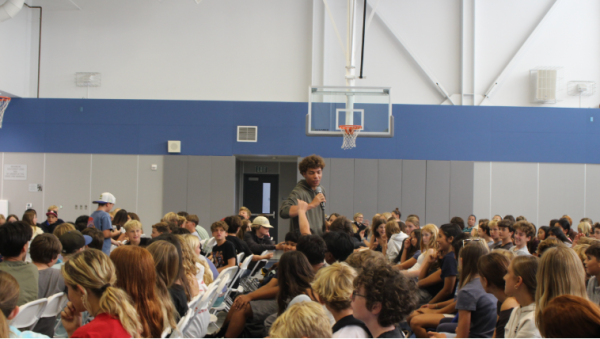
“Part of being a youth-led organization in today’s world is being able to understand the sheer number of challenges that you’re going to face and still commit to a process of problem solving,” Smith said. “I really feel like the reason that Go Greenish just had so much success is because when we face a roadblock, we don’t kind of throw our hands up and simply say, oh, there’s a roadblock. [Instead,] it’s more of a process of understanding why that roadblock exists and how we can navigate around that challenge.”
Evidently, this resilient attitude has been a driving force in the success of Go Greenish, enabling the organization to overcome barriers and accomplish their goals. The future is looking bright for this student-led organization, who show no signs of stopping the meaningful work.
“We’re trying to figure out how we can … increase our impact while still making sure that we’re staying true to our roots,” Smith said. “Because at the end of the day, we’re youth led, and we want to remain youth led, but that also means that a lot of the work that we do is completely voluntary … which can be difficult, but that’s the biggest vision we have for our future.”


